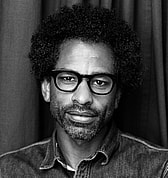I made it through The Tragedy of Macbeth (Apple TV+) largely because I love Denzel Washington, who plays the title character. This is what real stardom does—it brings people into the theater and gets them to consume stories they would otherwise ignore. There are very few actors I love enough to sit through 90 minutes of dialogue in Elizabethan English.
It’s extraordinary that Denzel is equally at home inside Macbeth and Malcolm X and Alonzo Harris of Training Day and on and on. Denzel can do anything, and it seems he can do no wrong. He may have been in some movies that aren’t great (Hurricane?), but he’s always great. He seems at his best exploring the complexity of leaders. He has the presence, the power, the gravitas to play alpha figures, and the intelligence to find and bring out their weaknesses—Macbeth, like Alonzo or Frank Lucas in American Gangster or Whip Whitaker from Flight, are all leaders. Yet, they’re deeply flawed and they’re ultimately the villains. Denzel is such a great storyteller that we’re attracted to these characters and love their force, but by the end, we understand why they must go down.
I feel like most great actors are chameleons who can either be very different in each role (Daniel Day-Lewis, Viola Davis), or play a version of themselves (Sam Jackson, Jack Nicholson) each time, but they have so much charisma that we flock to them anyway. Denzel has the capability to become someone else—Roman J. Israel is not Denzel, and Troy Maxson in Fences is totally different than Keith Frazier in Inside Man or Bleek Gilliam in Mo’ Betta Blues—but for me, generally, Denzel falls more on the side of He Who Usually Plays Himself And We Love It. How many times has he said “My man”? How many times has he given us suave power and that cool, badass walk and that deep, textured voice that captivates us by being the most interesting person in the room? Macbeth is more of that.
Denzel dominates his scenes, of course, sometimes with just a look, and he makes this foreign dialogue seem natural, which is a trick I will never understand. Macbeth is, of course, a centuries-old story, but it remains valuable and modern. It has lessons that still resonant today. Macbeth murders and murders and murders and lies and connives his way to the throne, but once he’s on top, he’s wracked with so much guilt that he sees the ghosts of the men he has killed, and he loses his mind. His throne is unearned, and without a sense of legitimacy, the people rise up to kill him. He is both propelled by a prophecy that comes true and undone by a prophecy that comes true—it’s amazing that centuries after his death, Shakespeare remains one of the greatest writers in the world.
Even if Macbeth is new to you and Shakespeare seems off-putting with his ultra-flowery language that can be hard to understand, if you are a Denzel fan, if you love acting and cinema, and if you love writing you should make yourself sit through this. Not all art is meant to be easy to consume. Sometimes the audience has to put in some mental work to understand what’s really going on—that’s not bad art; creators don’t have to hand it all to you on a platter. It’s fun to work as an audience member, to have to think hard about what’s going on. When you cut through all that and realize what Shakespeare is really saying and you see Denzel give that same smirk he gave on the streets of Harlem as Frank Lucas or the streets of L.A. as Alonzo Harris, you’re in awe of how amazing this actor is.

Touré is the host of the podcast “Toure Show” and the podcast docuseries “Who Was Prince?” He is also the author of seven books.
Have you subscribed to theGrio podcasts “Dear Culture” or “Acting Up?” Download our newest episodes now!
TheGrio is now on Apple TV, Amazon Fire and Roku. Download theGrio.com today!


